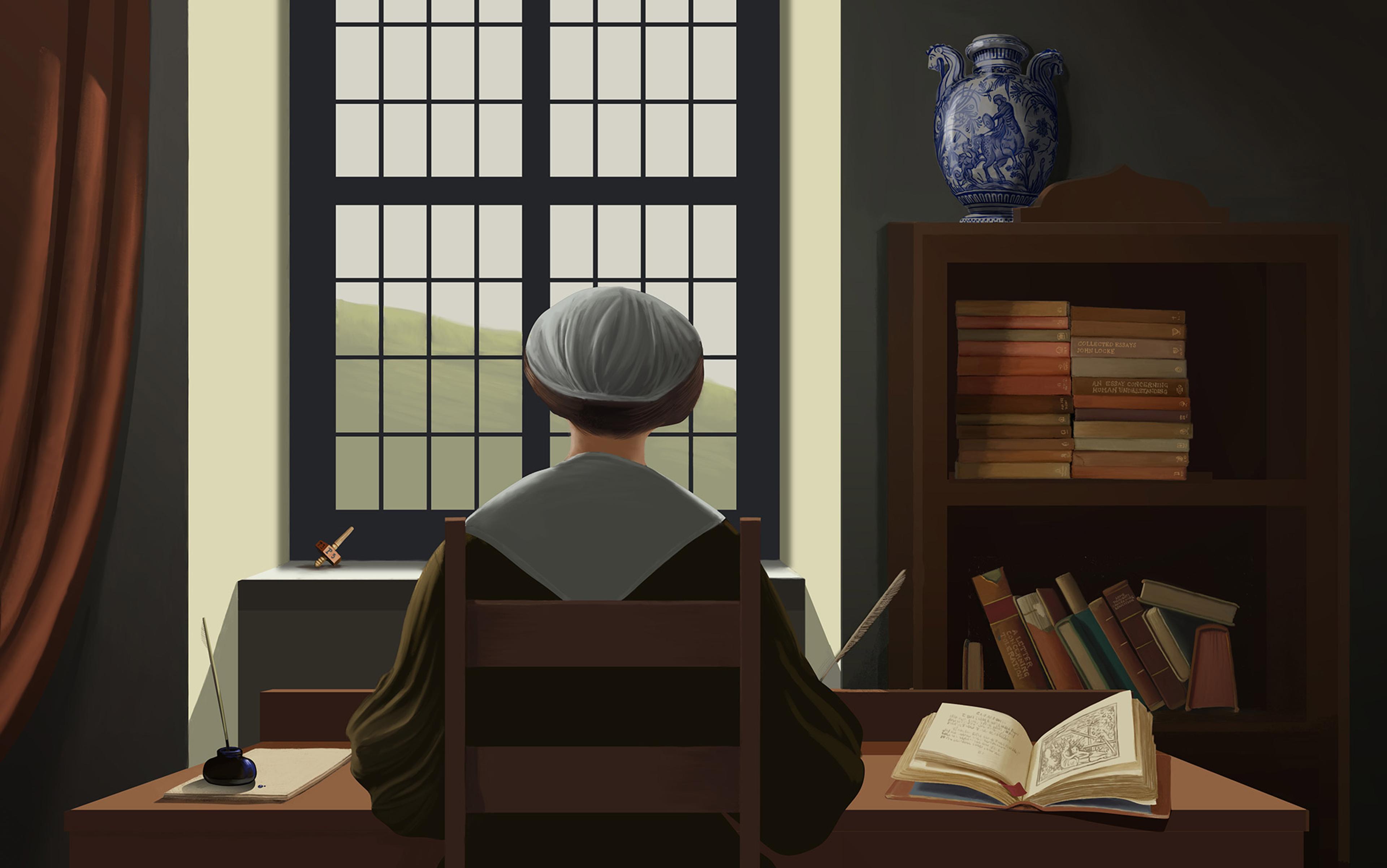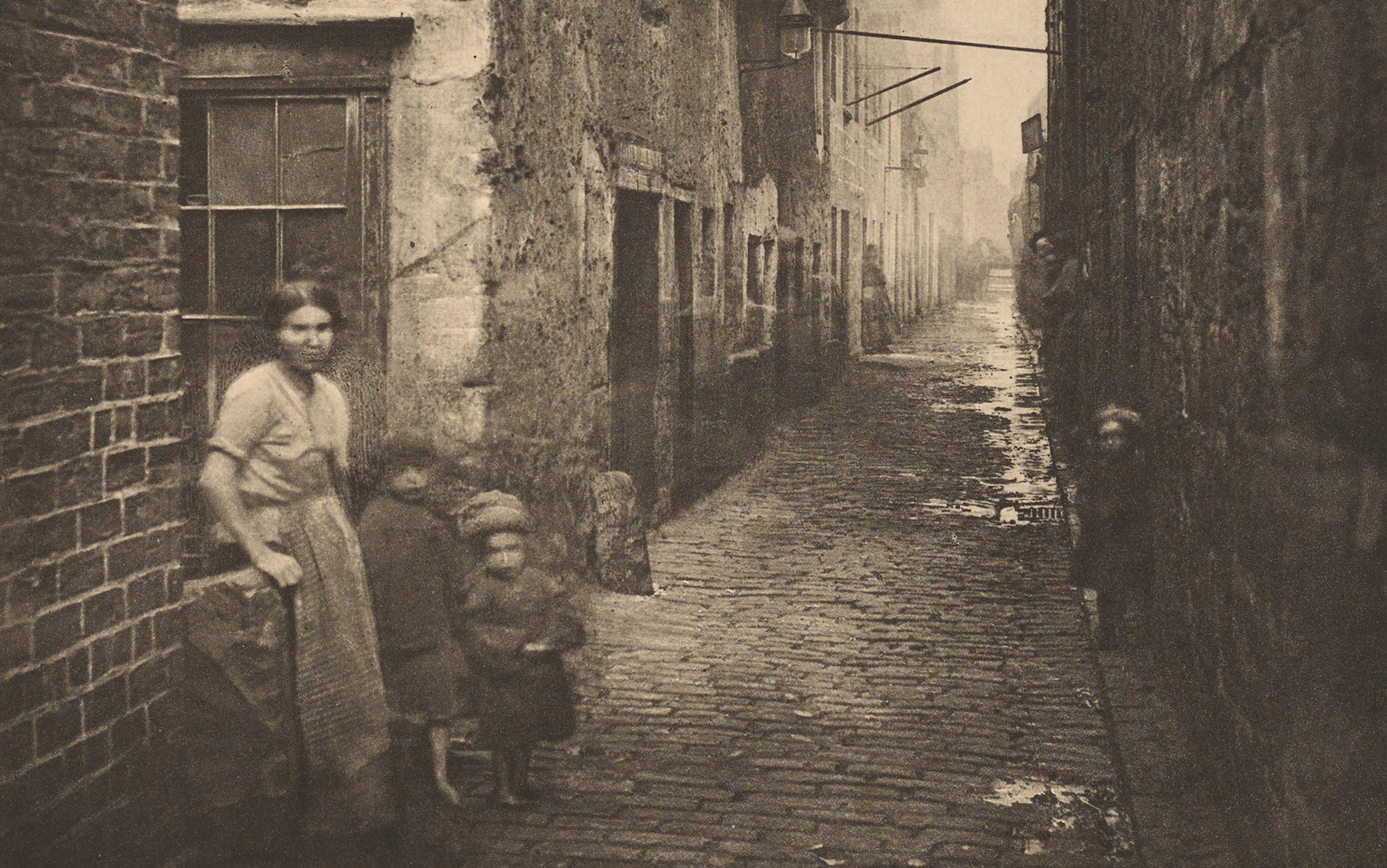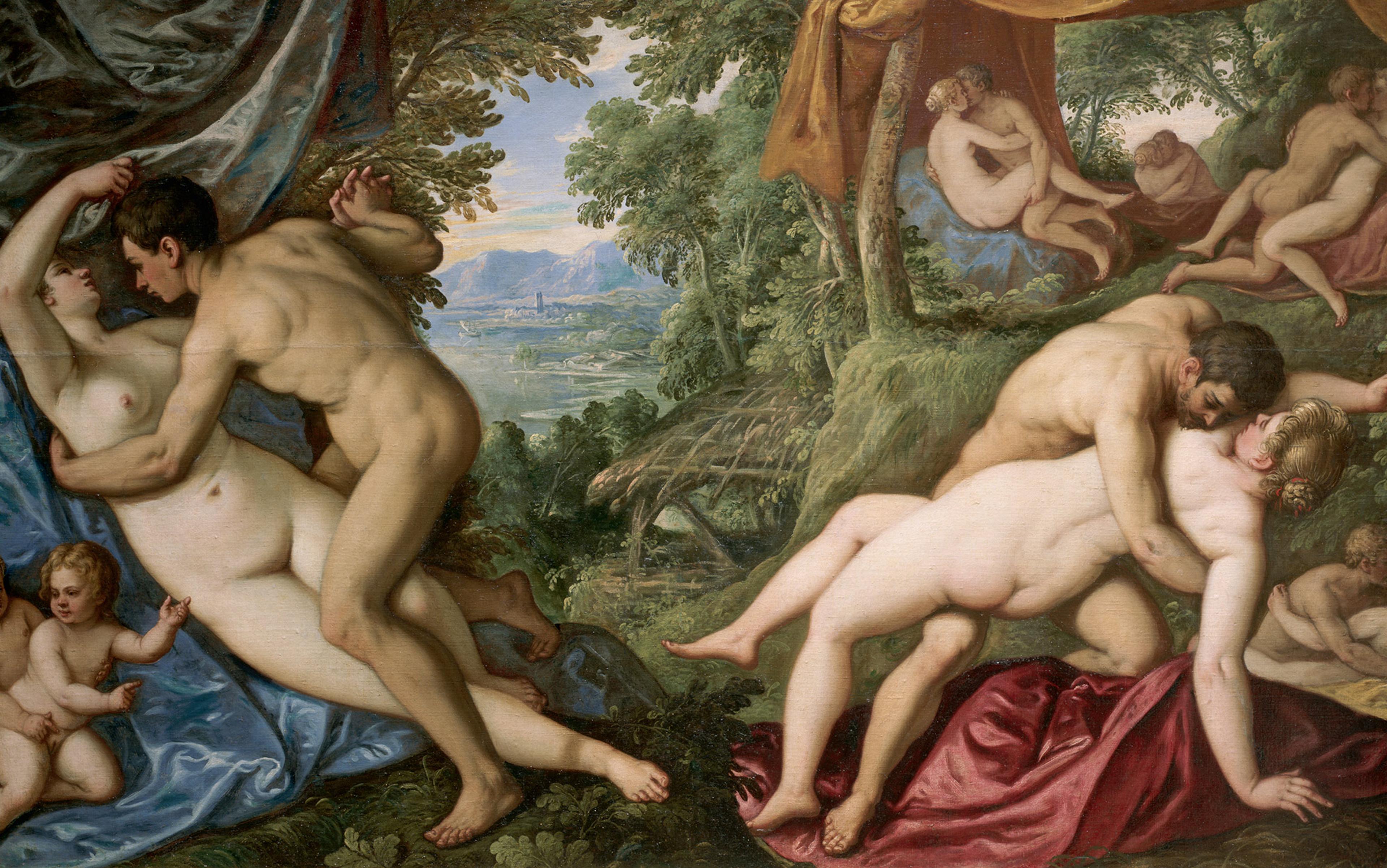In 1696, Damaris Cudworth Masham, an Englishwoman and a reluctant philosopher, stepped from obscurity to publish a book whose title – A Discourse Concerning the Love of God – concealed the feminist gems within. For instance, she insisted, contrary to some philosophers and theologians of her day, that mothers were not corrupting forces but foundational to the pursuit of knowledge. Then in 1705 she entered the public sphere again with another work, more radical than the first, titled Occasional Thoughts in Reference to a Vertuous or Christian Life, in which she argued that women should contribute to all intellectual subjects: ‘I see no Reason why it should not be thought that all Science lyes as open to a Lady as to a Man.’
Masham was also close to the Enlightenment philosopher John Locke. Their friendship endured for almost 20 years. It was an intellectual, personal and at times romantic exchange that began before her marriage and endured after Locke moved into her home with her husband and children. No need to write letters when you can share ideas near the fire in the evenings. This was a period of great philosophical flourishing for Masham, during which she wrote her two and only books.
If it were not for Masham’s affiliation with Locke, I’m certain that these two books would have been completely lost to us. In fact, she probably wouldn’t have written them. I resisted exploring her close bond with Locke when I wrote my dissertation about her ideas years ago. At the time, it seemed the right thing to do. I wanted to treat Masham’s body of work as I would have treated any male philosopher’s: independent of his private life. I eventually realised my mistake. No person’s work exists in a vacuum, and by acknowledging Masham’s relationship to Locke – he broke her heart yet encouraged her philosophical work – I gained a deeper appreciation of her oeuvre, as well as her experience of being a woman in philosophy.
When I finally sat down to read her letters to Locke, I was not in a good place. I was in a relationship with a philosopher a few years older than myself, a man who had initially been my teaching fellow, then my lover, and eventually also my colleague – and to whom I frequently looked for validation. I’d pursued a career in philosophy with the dream of living a life of enquiry, but I didn’t expect it to be such a boys’ club or that I’d be managing chronic self-doubt and self-censorship. As I read Masham’s correspondence, I realised that I, too, had a John Locke – that is, a man in philosophy on whom I depended for a sense of belonging in the field. In this way, I began to see how Masham’s relationship with Locke was an important story to tell, not only to showcase her philosophy, but also because she was brilliant and, despite being raised among the intellectual elite, she still questioned whether she was right for philosophy.
Around Christmas 1681, Damaris Cudworth attended a party at the home of well-connected friends in London. As the daughter of Ralph Cudworth – a Cambridge Platonist philosopher and master of Christ’s College – Damaris was brought up in one of the supreme intellectual environments of her age. She was also unmarried, beautiful, witty and in her early 20s. It was certain she would be noticed. A few weeks after the party, she received a letter from one of the guests. It was from the house doctor, who, as the letter suggests, had been taken with her. He was lanky, had a Roman nose and, according to fashion, wore a long brown wig tied in a loose ponytail. At 49, he was more than twice her age. He was John Locke, not yet the author of a landmark treatise on empiricism that would transform philosophy for centuries to come, but a former diplomat and medical practitioner who held a permanent post at Oxford. He was an entertaining guest at parties but, as his closest friends knew, he preferred intimate, intellectual conversation – just like Damaris did. He asked her if he was being too forward by contacting her.
She replied she wasn’t interested in romance, but that might change. Soon, many letters passed between them. Their correspondence was playful, humorous and cerebral. Unlike the scholars she knew growing up, Locke was ambivalent about academic life and, despite his permanent post at Oxford, he spent most of his time in London, the seat of the latest experimental methods of enquiry. His view that philosophical insight came from varied experience, and that the senses were the origin of all human ideas, contradicted the rationalist theories of her father and most other Cambridge Platonists. She must have found Locke’s confidence and ideas refreshing. She shared that she was drawn to philosophy, although she had been unfortunately ‘Diverted from it when I was Young … by the Commands of others.’ She didn’t identify who’d held her back, though it probably wasn’t her father whose philosophy she understood well. Locke trusted Damaris as a stand-in for her father whose metaphysics he wished to better understand. He called her his governess and praised her brilliance. ‘It’s not so,’ she coyly replied. She enjoyed his attention, how his persistent philosophical questions revealed his confidence in her mind, but she also found it anxiety-inducing. She described these moments as ‘Fitts’ that made her sick, sending her to bed for hours to recover, and which she linked to the pressure to perform brought on by Locke’s enquiries: ‘I almost wish sometimes that I were Dumb.’
By late spring that year, after months of correspondence, she realised she’d fallen in love: ‘I onely write you now to let you know that you have a Governess who cannot forget you.’ She was of the age when women were expected to be married, and it’s likely that she hoped Locke would propose. Her romantic tie helped keep Locke within her orbit, and a marriage to him would cement philosophy into her future.
Six months after her wedding, she wrote to Locke: ‘Household Affaires are the Opium of the Soul’
In December, nearly one year after Locke first wrote to her, they decided to meet in London. It must have gone well, because their next exchange is a poem they composed about two lovers, Clora and Damon, thinly veiled stand-ins for themselves. In his contribution to the poem, Locke confesses Damon’s willingness to give up his singlehood to be with her: ‘My freedome I to you resigne.’ He is captivated by her: ‘Was I not always in your power?’ Yet, weeks after this promising exchange, there was no intimation of a marriage proposal. Damaris decided to ignore Locke and his many letters. Finally in April, she told him that her silence was his fault: ‘the Consequence of giveing me no Direction’. But Locke had reasons to be noncommittal. England was in the throes of anti-government plots, and his associates had fled the country after accusations of treason. That September, worried about his own safety, Locke moved to Holland, and Damaris slipped into a depression.
Two years passed along with a handful of letters and still no proposal from Locke. And so, she did what most single 26-year-old women at the time did: she got married. The groom was Sir Francis Masham, a widower with nine children who lived on a large estate in the countryside of Essex. In marrying, she became nobility. Her new husband, 13 years her senior, wasn’t an intellectual by any stretch, but he had a large house, financial means, and the promise of affording her some leisure to study, read, and write.
She was soon disabused of this. As Lady Masham, she was in charge of supervising servants, managing household supplies, and raising stepchildren. Six months after her wedding, she wrote to Locke: ‘Household Affaires are the Opium of the Soul.’ Then her son was born, and her husband, who was often in London, was not much help or company. She grew lonely and bored. She wrote to Locke: ‘For All my quarrel with you I cannot help telling you that there is scarse any thing I would not give to see you Here in my Closet where I am now writeing to You.’
Over the next few years, Locke wrote Masham letters, encouraging her to engage her mind. He asked her to write poetry, which she sent to him. Her confidence grew. She signed one letter to Locke as if she were a published writer: ‘I will Conclude like other Authors, Finis.’ In another she wrote: ‘[Y]ou may see me in Print in a little While.’ He also urged her to do philosophy. He asked her to give him comments on his manuscripts, hoping she would identify problems. Unlike her younger self, Masham now expressed feeling intellectually up to the task, despite her weak eyesight.
During this period, her father died, and Locke became her most significant connection to the world of philosophy. Still, Masham’s circumstance made it difficult for her to experience those pleasures of the intellect that philosophers throughout history praised, and she was having a much harder time living in rural England than she let on in her letters to Locke. When she did write about it, years later, filling pages at the end of her second and final treatise, her descriptions were more like an existential nightmare.
Masham described in the third person the struggles of being a smart woman in the world – especially in the country – yet some sections read as autobiographical. She reported that a smart woman is intimidating, and for this she is mocked and gossiped about all over town. Her local parson is too shy to speak with her. Her doctor worries that she is concerningly peculiar. Because she is intelligent enough to manage her own home, she makes her neighbours uncomfortable, and they rarely visit. Masham says the smart woman is at odds with society whether she wants to be or not; her very being is a threat to the world as such. If a woman even has the leisure to practise philosophy, Masham writes, then she is:
a Subject of Ridicule to one part of them, and of Aversion to the other; with but a few exceptions of some vertuous and rational Persons. And is not the incuring of general dislike, one of the strongest discouragements that we can have to any thing?
What might redeem the practice of philosophy for a woman, then, would be an idea that compensated for the social battering and self-doubt she would inevitably have to endure on account of her sex. But at the time, no idea moved Masham in this way.
When Masham was 30 years old, William of Orange had become king and, with a new government in power, it was now safe for Locke to return to England. Her home quickly became his favoured place, and after an agreement with Francis, Locke moved in permanently. The philosopher would pay one pound a week in return for lodging for himself and his butler, and one shilling for his horse. Locke was provided with the two large rooms on the first floor of the house. He brought his telescope, chairs and more than 4,000 books, his belongings spilling into adjacent rooms. Masham described Locke to a friend as like a brother or father, though Locke said it was something closer. Not surprisingly, their relationship sparked rumours, which they both ignored. The exception is a mysterious passage in Masham’s work about love and adultery, in which she writes that a wife’s love of another man competes with the love she owes her husband, but it does not diminish the love she feels for her child.
Locke introduced into Masham’s life good conversation and a steady flow of intellectuals, including Isaac Newton. He also connected her to Awnsham Churchill of the Black Swan, a highly respected, socially reformist book publisher who issued Locke’s works and would do the same for Masham’s. Although Locke was essential to securing Masham’s sense of self-worth as a philosopher, she wasn’t Locke’s ‘disciple’, as one scholar put it. It’s women and their experiences that motivate and shape her books. In fact, her philosophy doesn’t focus primarily on metaphysics or epistemology – though these ideas are there – but rather on the forces that inhibit women and keep them from participating in the life of the mind.
On 22 December 1694, Locke shared with Masham a text about the ideas of Nicolas Malebranche, an influential French philosopher who held that mothers inflict irreversible cognitive damage on their babies while in the womb. She was troubled by his claim that God should be the only object of our love, and that to love something other than God was a sin. And so, in 1696, Masham risked the censure she knew intelligent women faced, and published her first book, Discourse. She came to see how the power of reason could release women from the tired conceptions of men. She argued that Malebranche’s claims were impractical. No human could avoid feeling desire for things that please us, including a delicious meal or a dear friend. By this logic, she explained, we would have to live as hermits to lead a life of minimal sin.
She wrote that, though men might ‘pretend to be their Masters’, women are not made to serve them
She reasoned that knowledge of oneself and the world is the consequence of being social and forming loving attachments. Human cognitive development, she argued, begins with seeking pleasure, the strongest principle in human nature, which God implanted in us to direct us to the good. And she drew on careful observations she must have made as a parent who spent time in a nursery: from our first pleasurable perceptions, we desire to be in the presence of those things that bring us joy, for example, ‘when first we cry for the Fire, or the Sucking-Bottle’. Our pursuit of pleasure propels us to attach to other people and things of creation, and this process eventually leads us to wonder about the originating cause of our universe. For Masham, it is necessary to first love creation in order to love and obey God. And mothers emerge from her philosophical vision in a vital role: the transmitters of love who set us on the path of inquisitive engagement with the world.
After the publication of Discourse, Masham corresponded with Gottfried Leibniz and Pierre Bayle. She was also an empiricist like Locke. Yet for all her insight into the debates of her day, none of these topics dominate in Masham’s second and final book, Occasional Thoughts. As we learn in the first few pages, the book takes inspiration from a conversation Masham had about education with a group of mostly women who ‘expres’d much displeasure at the too general neglect of the Instruction of their Sex’. Masham said that they didn’t reach a solution but that her book, written a few years later – and at the urging of others – was her answer. She wrote that the fundamental problem was that women’s minds weren’t free. Though men might ‘pretend to be their Masters’, women are not made to serve them.
Women should be guided only by those ideas whose truth is affirmed by the operations of our own mind, Masham asserted. When a woman uses her reason, according to Masham, what she will discover is the will of God, which she can choose to follow or not. Additionally, she will perceive the far reaches of the injustices that shape her world. And here, the pleasure of contemplation will be mixed with notes of sadness. The thinking woman will see that the freedom to reason belongs to everyone, though it was wrongly kept from her. She will see men’s double standards. She might notice, for instance, that Scripture describes chastity as a ‘duty to both Sexes’, unlike the common practice of treating its infraction as
but a Peccadillo in a Young Man, altho’ a far less Criminal Offence against this Duty in a Maid shall in the Opinion of the same Persons brand her with perpetual Infamy.
Again, Masham turns to mothers and their role in maintaining social and political harmony. Mothers who had a rigorous education that instructed them how to think for themselves and follow God’s law would raise smart sons who would one day be responsible for successful governance. She thought the current social and political situation wasn’t ideal, and that the general lack of education for women would continue to ‘disorder Common-wealths and Kingdoms; disturb the Peace of Families’. She believed that women were as smart as men but had a greater capacity for empathy, making them better suited to raise children. This insistence on women’s superior capacity for care bothers me, as it further entrenches patriarchal views. But it also has a few radical implications. It’s why Masham thought that women ought to be the arbiters of parental decisions in the domestic sphere. And here once more she breaks from Locke, who insisted that fathers should be the ultimate judge in any domestic dispute. Her heightened respect for home life anticipated modern feminist laws that support the rights of mothers and attempt to curb domestic violence.
In April 1708, at the age of 49, Masham took a trip to Bath, which she didn’t survive. A biographer who visited her grave around 1800 reported that she was buried under a black stone in the middle aisle of Bath Abbey. The inscription on a pillar nearby, reproduced in full by the biographer and purportedly written by her son, extolls her virtue and good parenting. But I’m drawn to where the dedication mentions her ‘small Treatises’, her ‘Learning, Judgment, Sagacity, and Penetration, together, with her Candor and Love of Truth’, and – especially this final part – her lack of ‘Opportunities to make those Talents shine in the World’. Masham’s son was acutely aware of what she could have been, if only her freedoms had extended the length of men’s. This passage stands in contrast to the moments when she acknowledged the relatively modest freedom allotted her, which she met with a similarly modest aim: if one woman’s soul was saved by her ideas, she once wrote, then her work was of value. Masham’s gravestone no longer exists in the abbey, having mysteriously disappeared years ago. Some 19th-century scholars came across her work, one writing that she was ‘a person remarkable for her mind’ and another that she deserved ‘a niche in the history of English philosophy’. But there were no reprintings of her books until 2005, in the United States and the United Kingdom, and even those are no longer in print.
In finding my way to Masham’s work and life, which saw me through an unhealthy relationship with my John Locke that ultimately ended, I came to trust my own ideas. This was partly because of Masham’s preoccupation with the woman question, which provided me with material I truly cared about, and the inspiration to finish my dissertation and earn my PhD. But also, Masham’s insistence that, with the right conditions, women could make significant contributions to philosophy, on a par with men, connected me to her on a personal level.
Maybe our connection is also metaphysical. Leibniz has this peculiar theory that I’ve always loved – that all souls have infinite perceptions of the universe past, present and future. Though he claims we’re not consciously aware of it, I like to think of it as if each of us is an echo of everything. Like that moment years ago, when I’m in my childhood home in Iowa to visit my father who was released from the hospital from a near heart attack. I’m clutching my baby daughter as she naps sweatily against my chest, watching the cottonwoods sway outside my window, and I’m brought to Masham in 1688, pressing her toddler’s head to her chest, while she pines for Locke across the English Channel; her father dead, her philosophical aspirations lying dormant and her ambitions intimately, precariously tied to Locke, while the dark wet branches of the tree tap her window.






